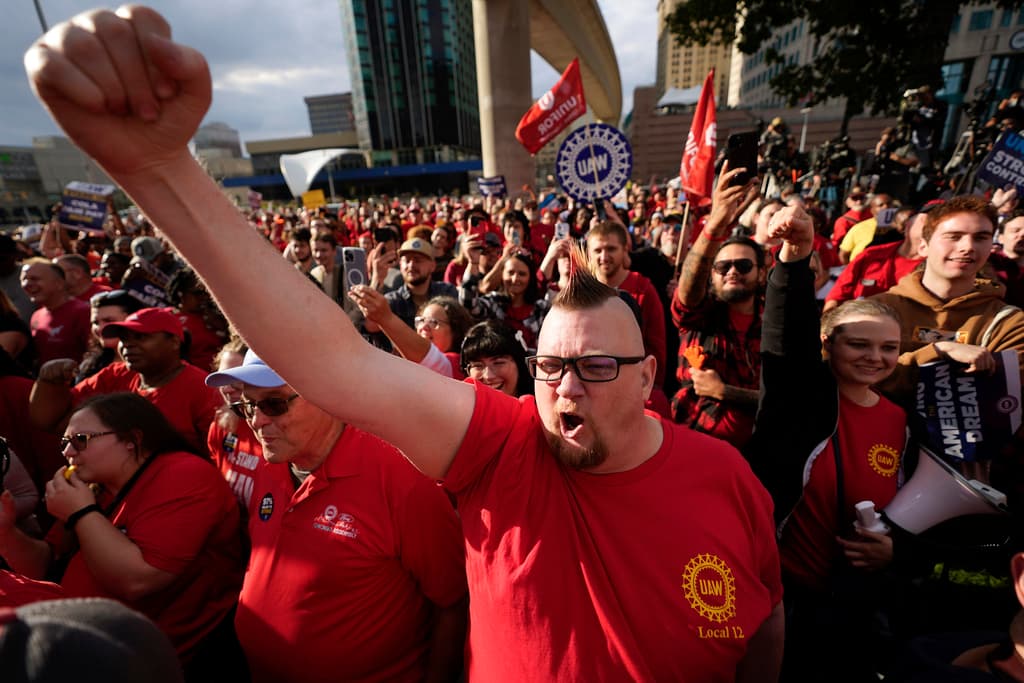Biden Expected To Join Picket Line Tuesday as Politicians From Both Parties Race To Align With Auto Strikers
As the United Auto Workers strike goes on, politicians are moving to capitalize on the strike’s popularity.

With President Biden expected to join a picket line on Tuesday, a new survey finds that support for the striking United Auto Workers has increased since the strike began as politicians from both parties move to align themselves with the striking union members.
Please check your email.
A verification code has been sent to
Didn't get a code? Click to resend.
To continue reading, please select:
Enter your email to read for FREE
Get 1 FREE article
Join the Sun for a PENNY A DAY
$0.01/day for 60 days
Cancel anytime
100% ad free experience
Unlimited article and commenting access
Full annual dues ($120) billed after 60 days

